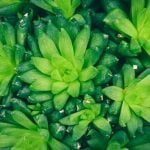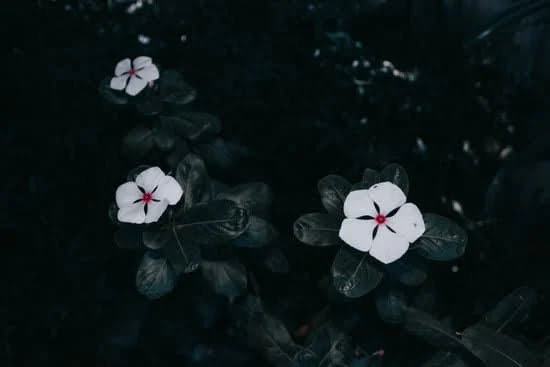Tips On Spring Vegetable Gardening At Home
Springtime is a great time to get your hands dirty and start a vegetable garden. Not only will you get to enjoy the fresh produce, you’ll also get some exercise and time outdoors. Here are some tips on how to get started:
1. Choose a sunny spot for your garden.
2. Amend the soil with compost or manure to improve its fertility.
3. Plant your vegetables in rows or clusters, spacing them according to the type and size of the vegetable.
4. Water your plants regularly, taking care not to overwater or underwater them.
5. Harvest your vegetables when they are ripe, using a sharp knife or scissors to cut them off at the stem.
6. Enjoy your delicious homegrown vegetables!
Organic Vegetables Gardening Tips
Organic gardening is a type of gardening that does not use any synthetic fertilizers, pesticides, or herbicides. This type of gardening can be done in your backyard or on a small scale in your home.
When starting an organic vegetable garden, you will need to choose the right location. The garden should get plenty of sunlight and have well-drained soil. You can improve the soil by adding compost or organic matter.
Once you have selected the right location, you will need to start planting your vegetables. Be sure to choose vegetables that grow well in your climate. Some vegetables that do well in organic gardens include tomatoes, peppers, cucumbers, lettuce, and broccoli.
Once your vegetables are planted, you will need to water them regularly and fertilize them with organic matter. You can also use natural methods to control pests and diseases, such as using garlic or chili pepper spray.
By following these simple tips, you can start your own organic vegetable garden and enjoy fresh, healthy vegetables grown without chemicals.
Zone 5 Vegetable Gardening Tips
If you are looking to plant a vegetable garden, you may be wondering which vegetables grow best in zone 5. The truth is, there are a number of vegetables that can thrive in zone 5, but some perform better than others.
Below is a list of some of the best vegetables to grow in zone 5:
-Tomatoes
-Peppers
-Green Beans
-Cucumbers
-Zucchini
-Squash
-Eggplant
-Lettuce
-Herbs
Tomatoes are one of the best vegetables to grow in zone 5, as they thrive in warm weather and require plenty of sun. Peppers also do well in zone 5, and can be planted either in the garden or in containers. Green beans are also a great choice for zone 5, as they are easy to grow and are very prolific. Cucumbers, zucchini, and squash are all great choices for summer gardens, and eggplant can be planted in late summer or early fall. Lettuce is a cool weather vegetable that can be planted in early spring or late fall, and herbs can be planted in containers and kept on a sunny windowsill.
If you are looking for a complete list of vegetables that grow well in zone 5, check out the following website:
http://www.vegetablegardener.com/article/vegetables-that-grow-well-in-zone-5
Gardening Tips For Beginners Vegetables
gardening is a fun and easy way to provide your family with healthy, fresh produce right from your own backyard. Here are some tips to help you get started:
1. Choose the right vegetables for your climate and growing conditions. Some vegetables, like tomatoes, require a lot of sun and warm temperatures, while others, like spinach, can be grown in cooler climates.
2. Plan your garden layout. You’ll want to choose a sunny spot with good drainage and plenty of room for your vegetables to grow.
3. Amend your soil with compost or other organic matter to improve drainage and fertility.
4. Sow your seeds directly into the soil, or transplant them once they’ve reached a suitable size.
5. Water your vegetables regularly, keeping the soil moist but not wet.
6. Harvest your vegetables when they’re ripe, and enjoy!
Free Vegetable Gardening Tips
There are many benefits to vegetable gardening, the most obvious of which is that you get to eat the vegetables that you grow! Vegetable gardening is also a great way to get exercise, fresh air, and sunshine.
Here are some tips to help you get started with your vegetable garden:
1. Decide what you want to grow.
Some vegetables are easier to grow than others. If you are a beginner, start with vegetables that are easy to grow, such as tomatoes, cucumbers, peppers, and beans.
2. Choose a location for your garden.
The best location for your garden is a sunny spot that gets at least six hours of sunlight per day.
3. Prepare the soil.
The best way to prepare the soil for your garden is to add compost to it. Compost is made from organic materials, such as leaves, grass clippings, and kitchen scraps. It is a great way to improve the fertility of the soil and helps to prevent diseases and pests.
4. Plant your vegetables.
When you are planting your vegetables, be sure to follow the instructions on the seed packet. Some vegetables, such as carrots and beets, need to be planted deep in the soil, while others, such as lettuce, should be planted close to the surface.
5. Water your vegetables.
Vegetables need water to grow, so be sure to water them regularly. The best way to water your vegetables is to use a garden hose with a spray nozzle.
6. fertilize your vegetables.
Vegetables need fertilizer to grow healthy and strong. You can buy fertilizer at your local garden center, or you can make your own fertilizer by mixing compost with water.
7. pest control.
One of the challenges of vegetable gardening is dealing with pests. The best way to deal with pests is to use organic methods, such as placing traps or using organic pesticides.
8. harvest your vegetables.
When your vegetables are ready to harvest, be sure to harvest them at the right time. Some vegetables, such as tomatoes, should be harvested when they are still green, while others, such as carrots, should be harvested when they are orange.
9. store your vegetables.
Once you have harvested your vegetables, you need to store them properly. Some vegetables, such as tomatoes, can be stored at room temperature, while others, such as carrots, should be stored in the refrigerator.
10. enjoy your vegetables!
The best part of vegetable gardening is eating the vegetables that you grow! Be sure to enjoy the fruits of your labor by eating the vegetables that you grow in your garden.

Welcome to my gardening blog! I am passionate about plants and enjoy sharing my knowledge and experiences with others. In this blog, I will write about everything related to gardening, from tips on how to get started to updates on my own garden projects.





